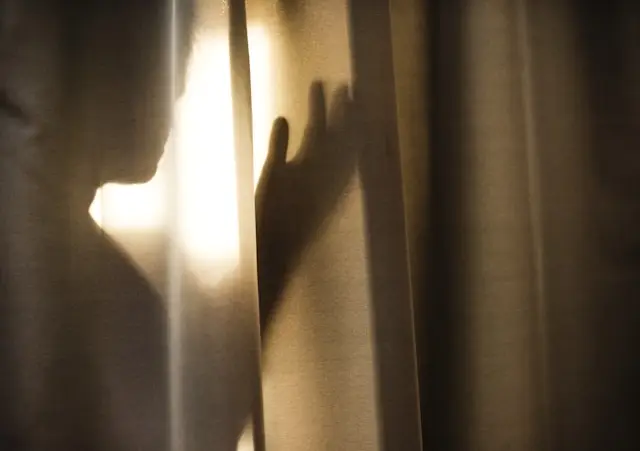Beyond the Ego: Spiritual Wisdom on Surrender and Letting Go of Control
Introduction: Why We Struggle with Control
Most of us like to believe we are in control. We plan, predict, and push forward, hoping life will bend to our will. Yet deep down, we know that much of life is unpredictable. Illness, loss, or sudden change remind us that our control is often an illusion.
This is where the spiritual path offers a radical invitation: to move beyond the ego—the part of us that clings, grasps, and resists—and to enter a space of surrender. Far from being weakness, surrender is one of the most courageous steps a seeker can take.
What Do We Mean by “Ego”?
In psychology, the ego is often described as the conscious self, the mediator between instinct and morality. But in spiritual traditions, the ego refers more to our false sense of self: the identity built around stories, roles, and attachments.
-
In Buddhism, the ego is seen as the illusion of a fixed, permanent self. Letting go reveals anatta—the truth of “no-self.”
-
In Christian mysticism, figures like Meister Eckhart spoke of “detachment,” where the soul releases self-will to align with God.
-
In Advaita Vedanta, the ego is the veil that obscures our unity with the Absolute. Liberation comes when the “I” dissolves into pure awareness.
Each tradition points to the same truth: the ego is not bad, but it is limited. If we mistake it for our essence, we live in fear, defensiveness, and constant striving.
The Wisdom of Surrender
Surrender doesn’t mean giving up on life or becoming passive. It means loosening the tight grip of control and allowing life to flow through us.
Research in neuroscience backs this up. Studies on mindfulness and meditation show that when people release attachment to outcomes, their stress levels decrease, creativity improves, and feelings of connection increase (Tang, Hölzel & Posner, Nature Reviews Neuroscience, 2015).
Spiritual wisdom suggests that surrender opens us to:
-
Peace: No longer caught in constant resistance.
-
Clarity: Seeing situations as they are, not as the ego wants them to be.
-
Trust: Aligning with a larger intelligence, whether we call it God, Tao, or the unfolding of life.
The Illusion of Control
We often think control brings security, yet it can do the opposite. The more we cling, the more fragile we feel. Consider:
-
A parent who tries to control every aspect of their child’s future often creates tension rather than freedom.
-
A professional obsessed with outcomes may achieve success but feel burnt out and hollow.
-
A spiritual seeker who tries to “force awakening” often discovers only more frustration.
Ancient Stoic philosophers like Epictetus taught a timeless principle: focus only on what is within your control—your actions, responses, and choices—and let go of the rest.
Practices for Letting Go of Control
How do we move beyond the ego in practical ways? Here are some grounded practices:
1. Breath Awareness
The breath reminds us of life’s flow. Try sitting quietly and observing the inhale and exhale without changing it. Notice how it moves naturally, without your control.
2. Mindful Surrender Practice
Next time you feel resistance, pause and silently repeat: “I release the need to control this moment.” This gentle mantra retrains the mind to trust.
3. Journaling Reflections
Ask yourself:
-
What am I trying to control right now?
-
What would happen if I softened my grip?
-
How might trust change this situation?
4. Contemplative Prayer or Meditation
Mystics across traditions encourage silent sitting, not to gain something, but to let go. In this practice, the ego gradually loosens, and deeper awareness emerges.
Surrender as a Path to Freedom
When we surrender, we don’t lose ourselves—we discover our deeper self.
-
Rumi, the Sufi poet, wrote: “Try to accept the changing seasons of your soul, even if they seem unfamiliar. Life is wiser than you.”
-
Jesus taught: “Whoever wants to save their life will lose it, but whoever loses their life for me will find it.” (Matthew 16:25).
-
Zen Buddhism echoes: in letting go, we awaken to “suchness”—life just as it is.
Freedom comes not by holding tighter but by trusting the current.
Common Questions about Surrender and Ego
Is surrender the same as giving up?
No. Giving up is rooted in despair, while surrender is rooted in trust. It means engaging with life wholeheartedly while releasing attachment to outcomes.
Does surrender make us passive?
Not at all. Surrender helps us act from clarity rather than fear. It is responsive, not reactive.
Can the ego ever fully disappear?
Most traditions suggest the ego remains, but we no longer identify with it. It becomes a tool, not a master.
Final Reflection
Beyond the ego lies a freedom that cannot be grasped, only received. Surrender is not a one-time act but a daily practice: softening, trusting, and allowing.
The paradox is simple yet profound: when we let go of control, we find a deeper power—the flow of life itself moving through us.
If you’d like to explore surrender and inner stillness more deeply, consider joining one of my online meditation and mindfulness courses, where we practise these truths in community.
Additional Resources
Why not treat yourself to a Meditation Retreat in the beautiful Devon Countryside?
This post may also interest you: Empowering Secret Of Allowing The Present Moment
Best Wishes,
David.
© D. R. Durham, All rights reserved, 2025.




